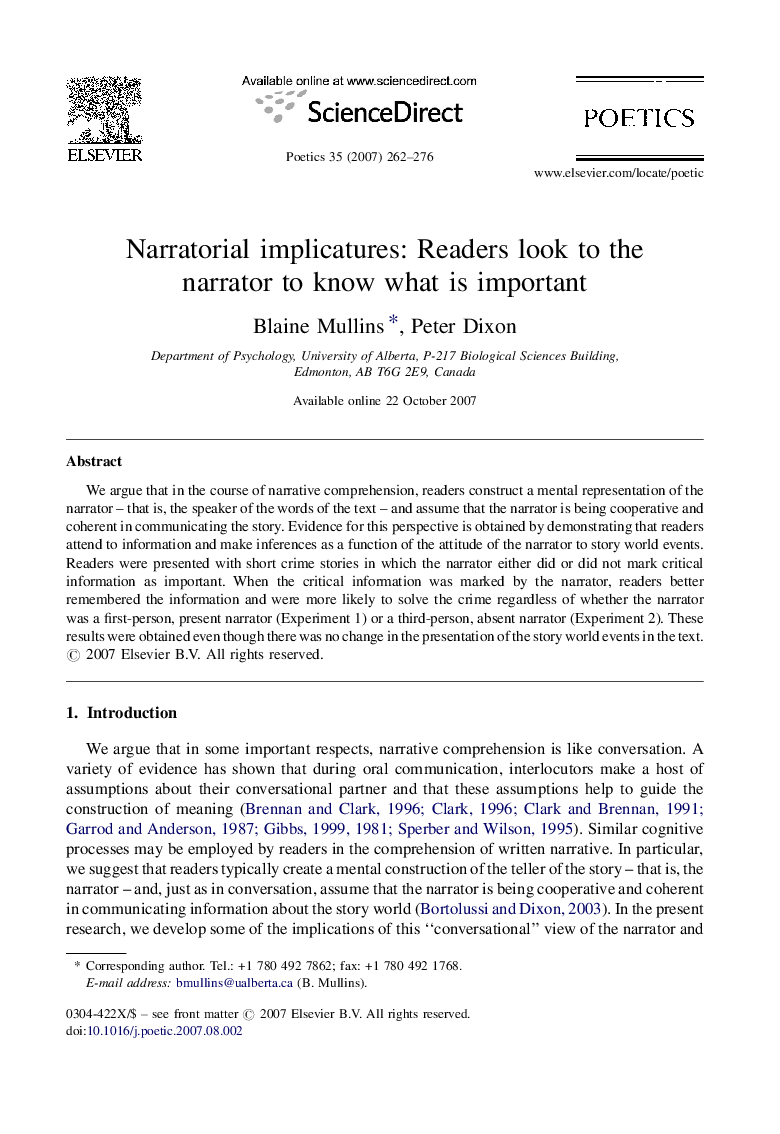| Article ID | Journal | Published Year | Pages | File Type |
|---|---|---|---|---|
| 1128642 | Poetics | 2007 | 15 Pages |
We argue that in the course of narrative comprehension, readers construct a mental representation of the narrator – that is, the speaker of the words of the text – and assume that the narrator is being cooperative and coherent in communicating the story. Evidence for this perspective is obtained by demonstrating that readers attend to information and make inferences as a function of the attitude of the narrator to story world events. Readers were presented with short crime stories in which the narrator either did or did not mark critical information as important. When the critical information was marked by the narrator, readers better remembered the information and were more likely to solve the crime regardless of whether the narrator was a first-person, present narrator (Experiment 1) or a third-person, absent narrator (Experiment 2). These results were obtained even though there was no change in the presentation of the story world events in the text.
